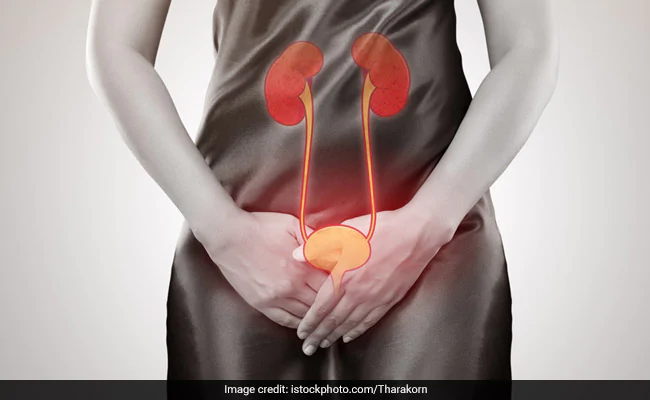- Our Doctors
- Our Specialities
Centres of Excellence
-
 Centre for Blood Diseases, BMT & Cancer Immunotherapy
Centre for Blood Diseases, BMT & Cancer Immunotherapy -
 Centre for Bone, Joint & Spine
Centre for Bone, Joint & Spine -
 Centre for Critical Care Medicine and ECMO Services
Centre for Critical Care Medicine and ECMO Services -
 Centre for Gastrosciences
Centre for Gastrosciences -
 Centre for Heart & Vascular Care
Centre for Heart & Vascular Care -
 Centre for Nephro-Urosciences
Centre for Nephro-Urosciences -
 Centre for Neurosciences
Centre for Neurosciences -
 Centre for Obstetrics and Gynaecology
Centre for Obstetrics and Gynaecology -
 Centre for Organ Transplantation
Centre for Organ Transplantation
Super Speciality
-
 Advanced Diagnostic and Interventional Radiology
Advanced Diagnostic and Interventional Radiology -
 Anesthesiology & Pain Management
Anesthesiology & Pain Management -
 Clinical Nutrition and Dietetics
Clinical Nutrition and Dietetics -
 Dental and Maxillofacial Surgery
Dental and Maxillofacial Surgery -
 Dermatology
Dermatology -
 Emergency and Trauma
Emergency and Trauma -
 Endocrinology and Metabolic Disease
Endocrinology and Metabolic Disease -
 ENT and Head & Neck Surgery
ENT and Head & Neck Surgery -
 Family Medicine
Family Medicine -
 General and Laparoscopic Surgery
General and Laparoscopic Surgery -
 General Medicine
General Medicine -
 Laboratory Medicine
Laboratory Medicine
-
- Key Procedures
- Our Hospitals
- International Patient
- Contact us
-
Quick Links
Blogs

Six Questions Answered About Physical Therapy
What is Physical Therapy
Physical Therapy can be defined as a treatment method that focuses on the science of movement and helps people to restore, maintain and maximize their physical strength, function, motion and overall well-being by addressing the underlying physical issues. Rehabilitation, injury prevention and health promotion/fitness comprise elements of holistic treatment after assessing a patient’s lifestyle. It also seeks to engage them in their own treatment.
What Is the Difference Between Physical Therapy and Physiotherapy?
NHS, the UK’s largest health website, describes physiotherapy as a type of treatment that “helps to restore movement and function when someone is affected by injury, illness or disability.” NHS adds this treatment can, “help to reduce your risk of injury or illness in the future.”
MedicineNet defines physical therapy as “a branch of rehabilitative health that uses specially designed exercises and equipment to help patients regain or improve their physical abilities.”
So,while the two terms seem very similar and are used interchangeably, however some differences may be claimed and may largely be regional, for example, in the United states most clinics use the term Physical Therapist while countries like Australia, Canada, Ireland, the U.K. and other parts of Europe, the profession is known as physiotherapy.
Who Is a Physical Therapist?
The healthcare professionals who provide physical therapy are called physical therapists. Highly trained, they hold specialized degrees in physical therapy, and are skilled not just in identifying the root causes of an injury, but in treating them as well. Often, the spot where the pain shows up may be completely different than the location of origin; the physical therapists work closely with the patients to identify the core issue and work to alleviate the limiting condition.
Physical therapist work in tandem with other healthcare professionals, and physicians may recommend a course of physical therapy after an injury, surgery (e.g., hip replacements) or such health issues as heart attacks or strokes.
Physical Therapist Treatment - What Conditions do Physical therapist Treat?
As professionals, physical therapist are experts at providing evidence-based treatment for:
- Preventing injury and disability;
- Managing acute and chronic conditions;
- Improving and maintaining optimal physical performance;
- Rehabilitating injury and the effects of disease or disability;
- Educating patients to prevent re-occurrence of an injury.
Patients may be referred to or seek assistance from a physical therapist for a variety of health issues and receive valuable treatment relating to the following conditions:
Cardiorespiratory provides support, prevention, and rehabilitation for people suffering from conditions that affect the heart and lungs, such as asthma, cardiothoracic surgeries.
Palliative Care for Cancers, Post ICU Recovery, and Lymphedema treating, managing, or preventing fatigue, pain, muscle, and joint stiffness, and deconditioning. Incontinence: managing and preventing incontinence and pelvic floor dysfunction. Women’s health concerns: addressing health issues surrounding pregnancy, birth, post-partum care, breastfeeding, menopause, bedwetting, and loss of bladder or bowel control.
Musculoskeletal preventing and treating clients with musculoskeletal conditions such as neck and back pain. Helping patients prevent or manage acute or chronic orthopedic conditions such as arthritis, managing after amputations, rheumatology rehabilitation through optimized treatment for arthritis, bursitis, tendinitis, carpal tunnel syndrome, etc.
Neurological promotes movement and quality of life in patients who have had severe brain or spinal cord damage from trauma, or who suffer from neurological diseases such as stroke, Parkinson’s disease, and multiple sclerosis. This vertical also takes care of post-neurological surgery recovery and rehabilitation.
Pain Managing or preventing pain and its impact on function in patients as well as inflammatory disorders involving immune system reactions.
Lifestyle Management offers tailored programs for individualistic needs of the client to enhance their quality of life. These include workplace ergonomic assessments and solutions, preventive care and management for obesity, diabetes, hypertension, chronic fatigue syndrome, stress disorder geriatric and musculoskeletal degenerative conditions, post-surgical physical rehabilitation like amputee training, and lifestyle management.
In the present context with the COVID 19 pandemic, physical therapists have been working with patients to recover from post-ICU stay by working on the respiratory system and overall mobility.
Sports Physical Therapy works closely with clients to provide customized exercise regimes. The rehabilitation solution is designed to get the client back to the athletic level required in optimum time and consists of overall fitness assessment, post-injury treatment, physical rehabilitation pre/post-surgery for conditions including but not limited to ACL reconstruction, rotator cuff repair, Achilles tendon repair. Specialized techniques such as manual therapy, electrotherapy, taping and exercises such as plyometric, strength training and endurance training are used to ensure optimum muscle and joint mobility and agility.
What Techniques do Physical Therapists Use?
Physical therapists use numerous techniques, depending on the nature of the injury or problem they are treating. The most common physical therapy techniques are:
- Manual manipulation and mobilization which include moving joints and soft tissue to help improve circulation, drain fluid from the body, and relax overly tight or muscles with spasms.
- Pain release techniques that help to suppress and block pain signals to the brain enhancing muscle relaxation.
- Dry needling stimulates the nervous system to dull pain, release muscles, boost the immune system and regulate various body functions.
- Demonstration of proper movement patterns which allow patients to help heal themselves.
- Functional testing to assess a patient’s physical abilities.
- Device prescription for assistive, adaptive, supportive, strengthening and protective devices and equipment.
What Should You Expect From a Visit
Each session with a physiotherapist is unique and specifically designed depending on the client’s health issues and needs. However, a visit to a physiotherapist generally includes:
- Learning about the patient’s medical history;
- Assessing and diagnosing the patient’s condition and needs;
- Helping the patient set and reach physical goals;
- Creating a treatment plan that accounts for patient’s health, lifestyle and activities;
- Prescribing a course of exercises and necessary devices
If you are experiencing issues with movement or function or are just seeking to optimize your health, why not check out a trusted resource like a professional physical therapist.
At Meitra Hospital, the Department of Physical Therapy and Rehabilitation focuses on re-establishing complete functionality and overall health of patients after an injury. We aim to improve the overall functioning of a person through various non-surgical resources like, therapies such as exercise and manipulation, which plays a vital role in the healing and recovery process. The department is equipped with the most advanced technology for the accurate treatment of injuries or degenerative issues. Once the nature of the problem is identified, we will design individual treatment plans that use the full gamut of manual therapy, exercises as well as electro physical modalities to ensure a client achieves full recovery as quickly as possible. The trained team works closely with clients not just in the hospital premises but also remotely utilizing latest technologies.
Latest Posts
-
 Awake Craniotomy Jul 12, 2022
Awake Craniotomy Jul 12, 2022 -
 Curing Constipation Jul 12, 2022
Curing Constipation Jul 12, 2022 -
 The ‘Gut Health’ Buzz Jul 12, 2022
The ‘Gut Health’ Buzz Jul 12, 2022 -
 Tips to Prevent UTI Jul 12, 2022
Tips to Prevent UTI Jul 12, 2022
Categories
- Clinical Nutrition and Dietetics
- Endocrinology and Metabolic Disease
- General and Laparoscopic Surgery
- General Medicine
- Physical Medicine and Rehabilitation
- Psychiatry
- Centre for Heart & Vascular Care
- Centre for Bone, Joint & Spine
- Centre for Neurosciences
- Centre for Gastrosciences
- Centre for Nephro-Urosciences
- Centre for Blood Diseases, BMT & Cancer Immunotherapy
- Centre for Obstetrics and Gynaecology

 +91 9393 108 108
+91 9393 108 108














































